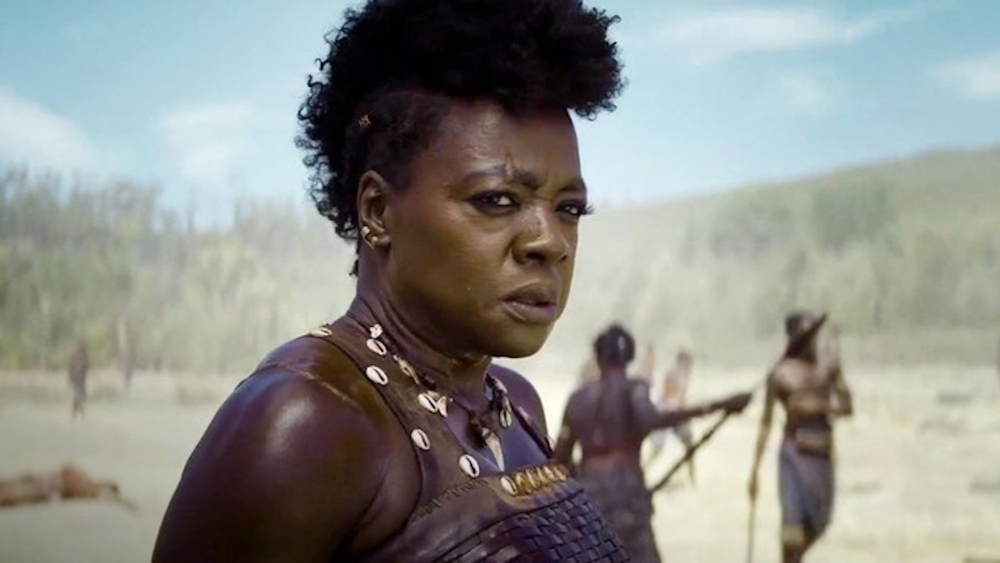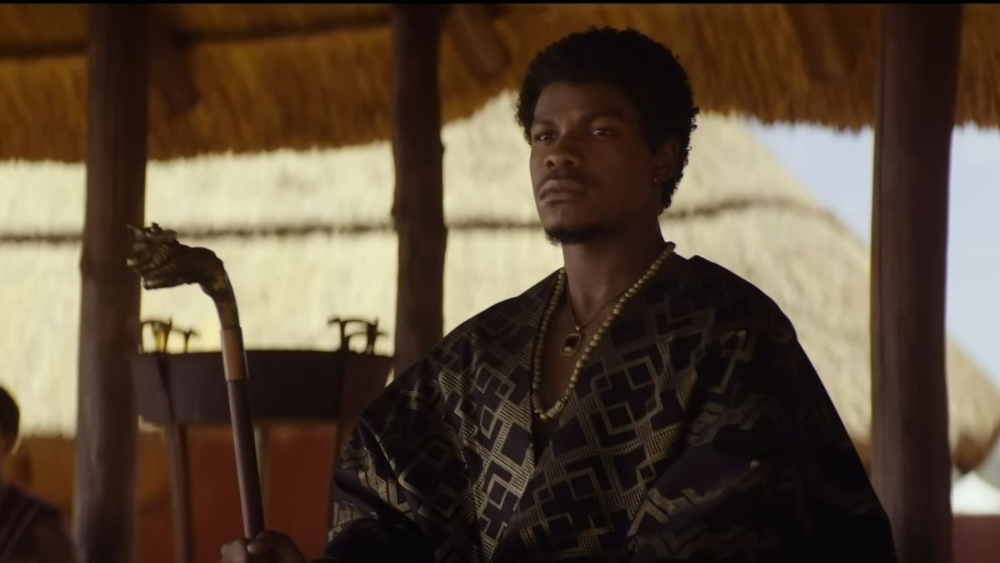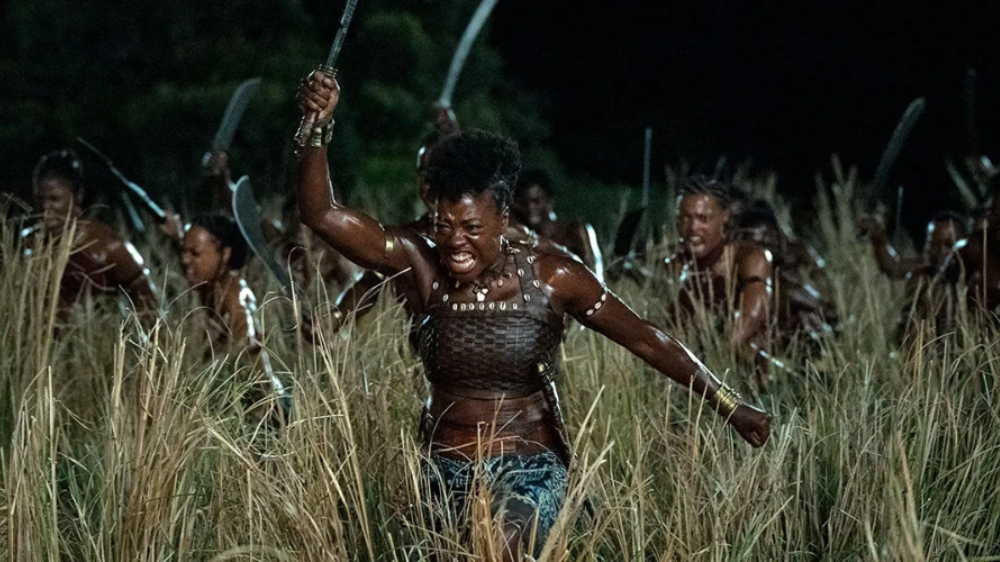
Before the TIFF world premiere of The Woman King, Viola Davis called the historical epic her magnum opus, and while many film festival intros feature exaggerated hyperbole, Davis isn’t prone to such talk, as the no-nonsense actress means business, much like her latest character.
The Woman King takes place in the West African kingdom of Dahomey, which is defended from neighboring kingdoms as well as Portuguese colonizers by a fearsome clan of female warriors who swear blood oaths to their duty. Davis plays their leader, Agojie, and the Oscar-winning actress delivers one of the best, if not the best performance of her storied career, elevating the entire movie in the process.
Gina Prince-Bythewood (Beyond the Lights) directed the period film from a script by Dana Stevens., and the cast includes Lashana Lynch (No Time to Die) as Agojie’s second-in-command, Izogie, and Sheila Atim as Amenza, a more seasoned, veteran leader. The pack eventually adds the young and vivacious Nawi, played by the impressive Thuso Mbedu, the star of Barry Jenkins‘ Underground Railroad series.
Agojie has to lead both freshly-trained newcomers and battle-scarred warriors, all while currying favor with the King of Dahomey (John Boyega), who falls prey to greed and ambition by selling captured neighbors of the other tribes to European slavers. They are mostly personified by Santo Ferreira (Hero Fiennes Tiffin) and Shante (Jayme Lawson), the child of an enslaved mother and Portuguese father.

As a coming-of-age warrior story, The Woman King might be pedestrian, predictable, and perhaps even boring were it not for three key elements that make heighten its originality. The first is that unlike most of the “band of brothers” warrior movies we have seen, fiction and non-fiction alike, this film features, well, Black female warriors, and Prince-Bythewood takes the time to explore the cultural motivations behind that choice by the kingdom, giving proper depth to the serious subject matter.
Stevens’ script, meanwhile, explores the complicated relationship between African kingdoms and European colonizers, both to each other and to those caught in the middle of the two worlds, as represented by Shante and her mixed racial lineage. The problem is that while Agojie and her warriors are heroines, braver than anyone on the continent, there are complex forces of evil (mostly directed by men, but even a handful by other women) swirling around her, imbued with a historical weight that may be too hard for them to overcome.
Second? The below-the-line talent is impressive, from Polly Morgan’s gorgeous cinematography featuring sweeping landscapes, stunning sunsets, and battles during both the day and night, to Terence Blanchard’s thunderous war score, which probably deserves an Oscar nomination. But special kudos are reserved for three women you should absolutely know if you don’t already — Babalwa Mtshiselwa (prosthetics and makeup), Gersha Phillips (costumes), and Louisa Anthony (hairstyling). The three of them and their teams, including several African artists, give the film an authentic feeling that makes a familiar story seem incredibly fresh.

For example, Agojie’s hair alternates between a full afro and a crept-up on the side warrior look, changing her from in-command and determined to in-command and vulnerable. The switch between the two hairstyles is so effective in conveying the two modes in which the character interplays (brave warrior, brave woman leader), that it is arguably the most effective use of hair in a movie since Bombshell. Meanwhile, Phillips’ costumes are beautiful to watch, as they achieve the needed flexibility for the fight scenes and give the women yet another layer of complexity. It’s a truly astounding collaborative effort that, once again, transforms what could’ve been a trite story into a compelling, gripping tale.
The third element is, of course, Davis herself, who shows why she is so revered by critics and audiences alike. Here, she’s asked to play, an aging, African tribal warrior/leader, which doesn’t exactly scream “four-quadrant audience” these days, but she dives into the role, embodying Agojie with every jump, punch, grunt, and tear in a performance that is both physically and emotionally demanding. She is a leader of these warrior women, yes, but really, she takes charge of this entire film with her utterly captivating turn.
Thanks to Davis and Prince-Bythewood’s sharp direction, The Woman King is one of the best films of the festival season, and while you know, more or less, what to expect from this story, I doubt you’re prepared for how it unfolds visually on the big screen, where you should absolutely make time to see it.
Grade: A-
The Woman King premiered at the Toronto International Film Festival on Sept. 9 and is now playing in theaters nationwide courtesy of Sony Pictures.





